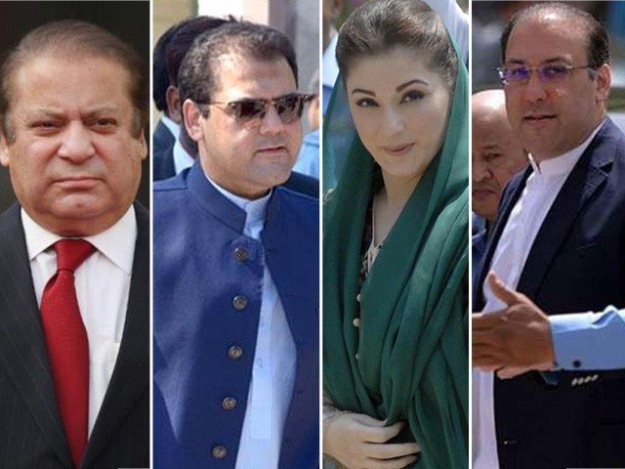
It has yet to be decided which portion of JIT head Wajid Zia’s statement would be admissible and which would not be as the court has allowed Zia to continue recording statement while simultaneously allowing the defence counsel to continue raising objections, saying that all the objections would be ruled on once Zia’s statement is completed.
“In the present case, the JIT probed the matter to answer questions already framed by the Supreme Court and such a report cannot be termed as [report of a police officer] under CrPC in the strictest sense,” Accountability Court Judge Muhammad Bashir stated.
NAB chairman rejects impression about hindering national development
In the order, the judge adds that the trial court has to see the material and cannot decide the case based on the opinions of a police officer.
“There should be no ambiguity in the mind of the applicant or accused that material collected by the JIT shall not be appraised according to the principle of the law of evidence and opinion of the prosecution witness shall be acted upon,” the order read.
The court allowed Zia to record his statement in the National Accountability Bureau (NAB)’s Avenfield Apartments reference but also conceded with the arguments of the Sharif family’s counsel, Khawaja Haris and Amjad Pervaiz.
The counsel for Nawaz Sharif, Maryam Nawaz and Captain (retd) Safdar had challenged the JIT’s report, saying neither the report of the JIT nor any opinion formed nor inference drawn by the investigation officer can be brought on the record, is inadmissible.
The judge has clarified that the opinions of the witness are not binding on the court, even if recorded in his statement. “Appreciation of evidence is the job of the court and it cannot abdicate its power and jurisdiction,” he stated.
“It is clearly decided here that learned prosecutor shall not be allowed questions eliciting the opinion about guilt or innocence of accused,” the judge stated in response to Pervaiz’s argument that it was court’s prerogative to give a ruling.
In the judgment, Judge Bashir stated that no hard and fast rule can be made about the admissibility, relevancy, oral statement of the investigation officer to say a certain portion is his opinion before recording his entire statement.
“If his [Zia] oral statement is mere opinion based on his subjective thinking, it shall definitely be discarded from evidence, thus the entire statement shall be recorded then objections raised shall be disposed of,” he stated.
Judge Bashir said that the court would see the material while appreciating the evidence, adding that admissions made before a police officer are admissible under certain conditions, and, therefore, a “sweeping direction cannot be passed in the present case which is complicated one”.
The court has ruled that examination of witnesses by the JIT “cannot be referred by [Zia] in his statement” and the matter that a portion of a statement of witness is hearsay or he has referred to witnesses’ statements recorded before JIT can be resolved after recording of evidence in view of material on file and relevant law. It added that defence counsel objections that the witness’s statement is opinion or hearsay, “might be correct but it causes a delay in recording the statement.”
All objections would be decided after recording evidence, he said, adding the “statement to the extent of fact in issue and relevant fact shall be considered.”
Avenfield Apartments: Sharifs challenge admissibility of JIT report by Zia
The judgment notes that JIT “investigated” the acquired assets of the respondents [Sharif family] and their interest therein, disproportionate to their known sources of income in the light of the orders of SC.
As per JIT report, the judge noted, “investigation was conducted with a view to collect evidence, corroborate or contradict the stance taken by respondents” before the SC and to ascertain how the events actually transpired.
Sharif family’s lawyers had prayed the court that “during the course of recording of evidence of Wajid Zia neither the report of the JIT nor any opinion formed nor inference drawn by the investigating officer can be brought on the record, being inadmissible under the law.”
While disposing of the application, the court summoned Zia on March 22 to continue recording his testimony against Sharifs in the Avenfield reference. This would be his fifth appearance as a witness and, at the moment, his statement is going on. Following the statement, defence counsel would cross-examine the witness, which might consume several hearings.




1736599343-0/fizza-(8)1736599343-0-165x106.webp)






1736508423-0/Express-Tribune---News-Desk-(9)1736508423-0-270x192.webp)

1736495887-0/sidra--(63)1736495887-0-270x192.webp)









COMMENTS
Comments are moderated and generally will be posted if they are on-topic and not abusive.
For more information, please see our Comments FAQ